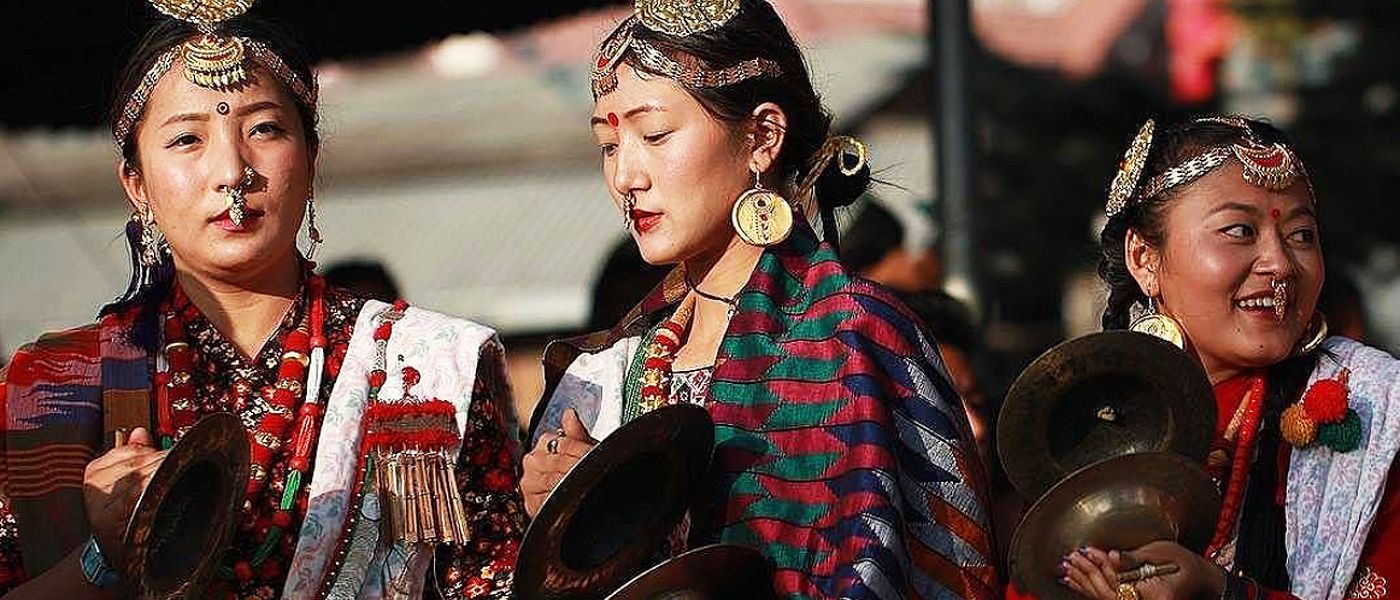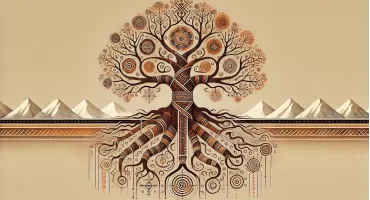Khambu, a tribe so vast and once so mighty, dispersed in clans (tharrs), languages, now spread across the globe but united with the spirit of Sakela. Albeit not without its own share of the now legendary curse of dissent amongst the multitude of us, to some it is also known as Sakewa, Sakenwa and so on. Khambus of the Himalayan belt have been celebrating Sakela since the legends of Sumnima & Paruhang have been chronicled. Somewhere along the line, we have deviated from receiving the blessings of our ancestors who had worshipped mother nature and the father universe. Since then we have blamed the regime that was, the faith conversions that have followed and in the name of new found Gods, have conveniently forgotten to worship our mother, who has selflessly nurtured us for ages and for generations ever so unfailingly.
Every Khambu must be inquisitive enough to seek an answer for any question that pertains to the very foundation of being Khambu itself. For what are we without our story?
But this is not about how the story begins or how it ends. It is about how the story must continue.

One of the major predicaments of Sakela is in its inability to reach a consensual date of its observation. What was in the past a ritual combined with the time of harvest, nomadic movement of the clan, positioning of the moon and the migratory flights of the birds, is now conveniently observed from the month of Mangshir to the month of Baisakh following less of the tradition apart from the Udhauli and the Ubhauli. Different regions observe Sakela at different dates. Although there is a vast difference in essence, in character, Sakela is similar to the Buddhist festival of Tshechu, which is also observed throughout the year during auspicious months corresponding to the Tibetan lunar Calendar. Like the monks who burn midnight lamps to work out auspicious dates for Tshechus, the Nakchongs of Khambus also task upon themselves to ascertain appropriate time for Sakela.
But unlike the Tshechu which is celebrated in the honor of Guru Rinpoche, the founder of Vajrayana Buddhism in the Himalayas, Sakela is observed in our obeisance to Mother Nature. Like the Tshechus, where the focal point of the ceremony is the Chaam; in Sakela, the Sili takes centerstage to impart us the valuable lessons of life.

With so many clans co-existing together in the Himalayan belt since ages, most of them have succeeded in corresponding their festival to certain calendar dates today. The Khambus have yet to reach a unanimous decision on selecting a calendar date. Hence, by virtue of being a populous Himalayan clan, the dissent has been a boon and bane.
It may seem discordant to observe a five month long festival without a universal calendar marking and without proper organization. However, like nature, which is beyond rules and still within, the Khambus must also find harmony in the variablity of celebrating Sakela while staying true to its spirit.
The spirit of Sakela is the coming together of little children playing in the laps of their mother.





Beautifully written. The terms Sakela, Sakela, Sakenwa, etc is not a “curse of dissent ” but just nomenclature of the different Rai languages. The only thing is that stand for the Spring and Autumn Festivals separately misunderstood by some.
Personally I too am of the opinion that a common ” consensual ” date is not in keeping with our tradition and culture as you observed we are worshippers of “mother nature and father universe.” We , living from about 500 ft asl to about 1400 ft asl will naturally feel spring in th plains, then hills and finally mountains and autumn in the reverse order. What do we do? Take the consensus of the hills and expect nature to work that way. I feel we let Nature dictates and we follow. Sorry to have used the “curse of dissent ” !
Sewanney Pratap Sir! Thank you for your comments. The dissent I talk of is not in particular of the terminology of Sakela but of general dissent among our clan with regard to our languages, our attires, our beliefs, our historical interpretations and so forth. We are not of one voice even in celebrations. You and I know very well of the differences without having to spell it out here. Yet, I am not against diversity. My article doesn’t seek to highlight the differences and instead suggests to create harmony in chaos.
I agree completely with you to ” let nature dictate and we follow” but I think not everyone understands the language of nature so a way has to be shown by those who understand. Alangney!
No problem.